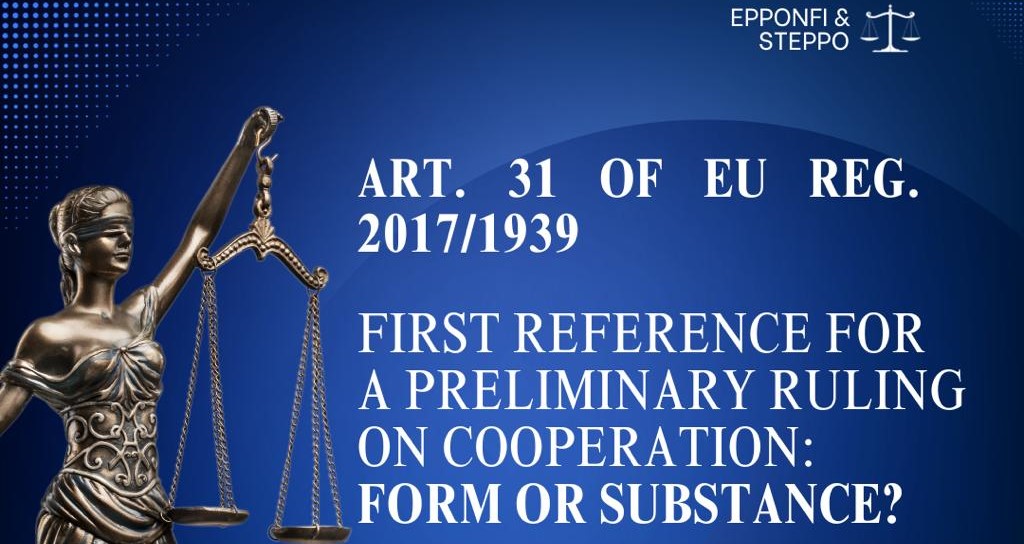Author: Fabrizio de’ Sanna
Subcommittee: Criminal Lawyers
Date: 15/09/2023
One of the most problematic aspects of the investigations conducted by the European Public Prosecutor’s Office (EPPO), which has been known since well before this body actually began to operate, is that relating to transnational investigations, which are, inter alia, regulated by art. 31 of Council Regulation EU 2017/1939 of 12 October 20171 implementing enhanced cooperation on the establishment of the European Public Prosecutor’s Office.
Well, today we must acknowledge that, precisely on the interpretation of such a rule, there was the first reference for a preliminary ruling to the Court of Justice. This concerns the exercise by the Court of one of the functions assigned to it by the aforementioned EPPO Regulation, in art. 42, paragraph 2, according to which it is established that the Court of Justice has jurisdiction to give preliminary rulings on the interpretation or validity of provisions of European legislation, which includes the aforementioned regulation.
In the present case, the reference for a preliminary ruling was made by the Oberlandesgericht Vienna (Higher Regional Court , Vienna) in relation to Article 31 and is currently pending before the Court under number C-281/2221.
At the moment we do not know when this issue will be dealt with.
The case stems from an investigation conducted in Germany by the European Deputy Prosecutor in Munich, aimed at ascertaining the alleged circumvention of customs rules – and the payment of the related duties, for damage to the Union, of more than one million euros – through the presentation of false declarations by a company importing biodiesel from Bosnia and Herzegovina to Germany and Austria.
In the context of that investigation, the German Public Prosecutor issued search and seizure orders concerning accounting documents located at the premises of the Austrian company to which the biodiesel was consigned.
As provided for by the German Code of Procedure, the aforementioned search order requested by the EDP was ordered by the Munich Preliminary Investigation Judge, on the basis of the indications of a crime presented by the prosecutor in charge of the case.
Since these operations were to be carried out in another Member State, the German prosecutor therefore activated the mechanism governed by art. 31 of the EPPO Regulation, laying down provisions on cross-border investigations.
The aforementioned mechanism provides that the EDP in charge of the investigation (and, therefore, in the present case the German one) makes available to the EDP of the State in which the measure is to be carried out the electronic file of the preliminary investigations, thus placing the prosecutor of the Member State (i.e., the Austrian one) in the position to examine the documents.
Although the search requested by the Munich EDP had already been ordered by the German court, the Austrian investigator, in accordance with national domestic procedural law, nevertheless requested the validation of the search order from the Austrian court; the (Austrian) court of first instance validated the measure, effectively duplicating the judicial review of the measure.
However, the suspects, through their lawyers, challenged before the Vienna Court of Appeal, the search orders validated by the Austrian judge, complaining on the merits of the insufficiency of indications of a crime, as well as the lack of the requirements of proportionality and necessity of investigative measures.
The legality of the measure already ordered by the court of the State responsible for the investigation was thus called into question, also on the merits and not only in form.
In those circumstances, the Oberlandesgericht Vienna therefore referred the question to the Court of Justice for a preliminary ruling, asking the Courts of the European Union whether it was actually necessary to review all the substantive requirements of the investigative measure at issue.

